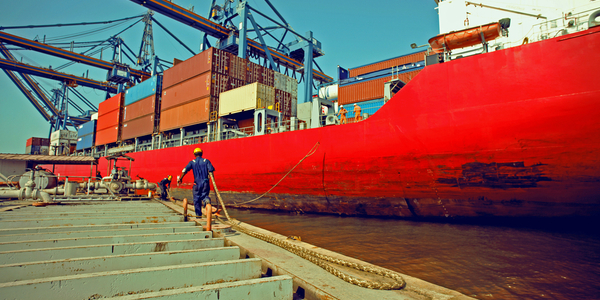On 17th April, representatives from the IMO and Human Rights at Sea joined BBC Radio Scotland’s national morning programme to discuss the ongoing issue and rising cases of abandoned seafarers globally.
It is known that seafarer abandonment is a serious problem that can blight the lives of those caught up in it.
Therefore, it must be tackled and it needs continual cooperation, not just between IMO and ILO and non-governmental organizations devoted to seaman’s welfare, but with flag States, port States and other industry groups too.
In light of the above, Mr Frederick Kenney, Director of the IMO Legal Affairs and External Relations Division, and David Hammond, CEO, HRAS, answered searching questions with the aim of bringing increased understanding to the Scottish audience.
Opening the segment, there were extracts from an interview by the BBC’s Paul Adams with Syrian chief officer Mohammed Aisha who has been stranded on board his ship which has been detained at an anchorage in Suez, Egypt, since May 2017.
As separately reported by the Business and Human Rights Resource Centre: “An Egyptian court detained the ship as it failed health and safety requirements and certificates; it awarded legal guardianship of the vessel to Mohammed and he is unable to leave”.
He says he signed the court order without fully understanding the consequences. “Port authorities are holding his passport; he is unable to leave until the ship is sold or an alternative for him is found.”
[smlsubform prepend=”GET THE SAFETY4SEA IN YOUR INBOX!” showname=false emailtxt=”” emailholder=”Enter your email address” showsubmit=true submittxt=”Submit” jsthanks=false thankyou=”Thank you for subscribing to our mailing list”]
Mr Kenney highlighted that last year, 93 abandonment cases were reported to the IMO/ILO Abandonment database and “which was a shocking figure”. So far, in 2021 28 cases have been reported. “We are on pace for another record year…”
David Hammond noted that according to the International Chamber of Shipping, annual world shipping trade had reached more than USD 14 Trillion, with 11 billion tonnes of goods transported by the equivalent population of Glasgow (1.6 million persons) and highlighted that “we should be able to look after our seafarers in a $Trillion industry”.






























































